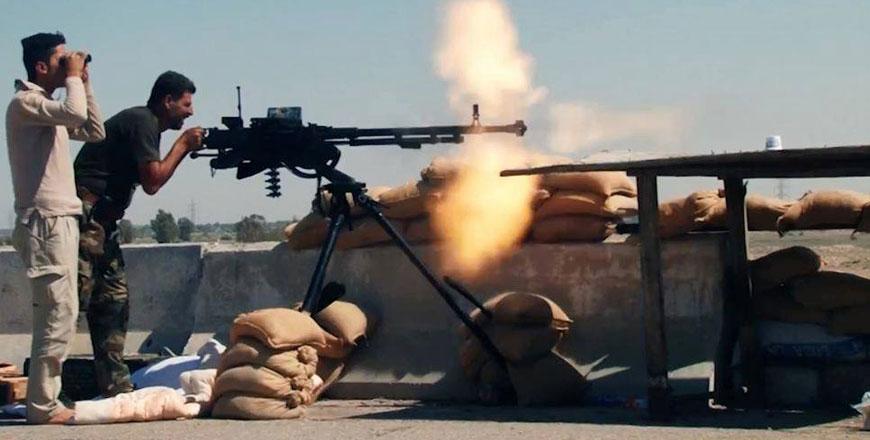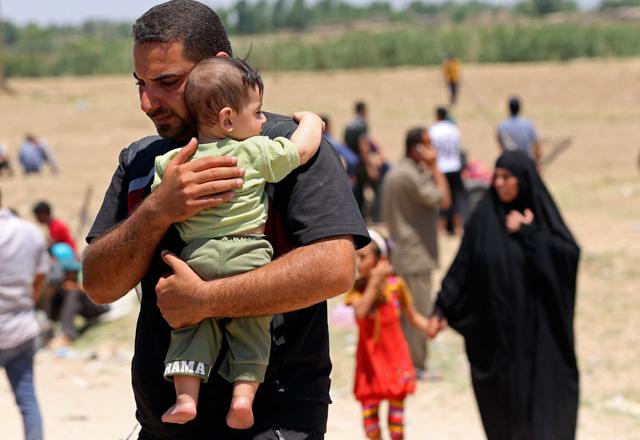You are here
Iraq PM reduces Cabinet by one-third in reform push
By AP - Aug 16,2015 - Last updated at Aug 16,2015
BAGHDAD — Iraq's Prime Minister Haider Al Abadi on Sunday ordered his Cabinet reduced from 33 members to just 22, consolidating the body as part of a major reform push in response to mass protests against corruption and poor governance.
The decision, announced by his office, would eliminate four ministries, including those of human rights and women's affairs, and consolidate others.
The move follows a far-reaching reform plan approved by parliament last week that eliminated the country's three vice presidencies and three deputy prime ministers, as well as reducing the budget for the personal bodyguards of senior officials and transferring it to the interior and defence ministries.
Iraqis have held massive protests in recent weeks against corruption and poor government services, focusing in particular on power outages that have made a recent heatwave even more unbearable.
Iraq's top Shiite cleric, Grand Ayatollah Ali Al Sistani, has lent his support to demands for reform, and parliament unanimously approved the wider reform plan last week in a dramatic show of unity for a country riven with sectarian and political rivalries.
Those reforms dismantled much of the top-heavy government erected in the years after the 2003 US-led invasion that toppled Saddam Hussein. The three vice presidencies were intended to give equal representation to the country's Shiite majority and Sunni and Kurdish minorities.
Iraq is struggling to roll back the Daesh terror group, which swept across the border from Syria last summer and seized around a third of the country, including Iraq's second largest city, Mosul.
Daesh militants attacked Iraqi troops Sunday outside the militant-held city of Fallujah, killing at least 17 troops, officials said.
Four suicide attackers drove explosives-laden military vehicles into government barricades outside Fallujah, west of Baghdad, setting off heavy clashes, a police officer and an army officer said. The officials said 15 other troops were wounded.
Both officers spoke on condition of anonymity as they were not authorised to release information.
The Daesh terror group captured Fallujah in January 2014, months before its main blitz across Iraq. This past May the extremist group captured the nearby city of Ramadi, the provincial capital of the Anbar province, where US troops fought some of their deadliest battles of the eight-year Iraq intervention. Tens of thousands of civilians have fled the province amid continued fighting.
Earlier on Sunday, Abadi said he would launch an investigation into commanders who allegedly withdrew from Ramadi against orders. A statement from his office said he approved "decisions to refer a number of leaders to military tribunal for leaving their positions without a warrant and contrary to instructions, despite several orders not to withdraw".
The ministries of defence and interior will form investigative boards to look into why troops abandoned their weapons and equipment while fleeing, the statement added.
Iraqi troops backed by Shiite and Sunni paramilitary forces last month launched a wide-scale military operation to dislodge militants from Fallujah and other key cities in Anbar province. US Central Command spokesman Col. Pat Ryder said Friday that Iraqi security forces are "encircling" Ramadi, in order to "tighten the noose around ISIL's [Daesh’s] neck in this city before commencing... the seize aspect of the operation," he said, using an acronym for the militant group.
Related Articles
ERBIL, Iraq/WASHINGTON — Iraqi Shiite militia fighters are tightening a noose around the Daesh-held city of Fallujah west of Baghdad a
BAGHDAD — Iraqi forces may face a big battle near Baghdad before they can try to retake the Daesh stronghold of Mosul: Fallujah, a long-time
Iraq's military has dispatched reinforcements to help its battered forces in Ramadi, a city now largely held by the Deash terror group after its militants swept across it the day before, an Iraqi military spokesman said Saturday.

















